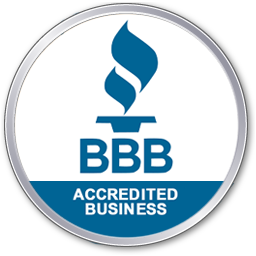If your home was built prior to 1985, it’s possible that there’s an old heating oil tank buried somewhere in your yard. While that may not sound like a big deal, you could be cited for multiple environmental violations, even if you weren’t the one who installed or used it.
This is especially true if the tank is leaking or has contaminated local soil or groundwater. Between environmental penalties, oil cleanup costs and heating oil tank decommissioning, you could end up spending hundreds of thousands of dollars on something you didn’t even know was there.
Beyond costs, there are also a number of dangers associated with heating oil tanks when they aren’t properly managed or removed. Let’s take a closer look at what heating oil tanks are, the dangers they pose and how you can safely have your heating oil tank decommissioned if needed.
The purpose of a heating oil tank (HOT) is to provide heat to your home. Heating oil tank systems create heat through the following steps:
While natural gas and electricity are the more popular choices for residential heating these days, the U.S. Energy Information Administration (EIA) estimates that 5.3 million U.S. households used heating oil as their primary source of heat in the winter of 2020-2021. The majority of these homes were in the Northeast.
Still, according to Oregon’s Department of Environmental Quality (DEQ), an estimated 100,000 Oregon homes have an underground heating oil tank. However, the locations of these tanks are only known for about half of them.
The easiest way to know whether your property contains an underground heating oil tank is through a residential tank sweep. This process requires advanced equipment and extensive research by trained environmental professionals to locate and identify any tanks buried in your yard.
You should consider having an oil tank scan if:
You might be asking, “Why does it matter if I have an underground heating oil tank that I can’t even see?” The answer is because heating oil tanks can pose dangers to both human health and the environment.
If heating oil tanks are left underground for too long, they start to corrode. Many of these tanks are made of galvanized steel, which can rust over time. And when they start to corrode, they leak. This means you could have a variety of toxic chemicals leaking into your yard, including kerosene, range oil and even jet fuel.
While heating oil tanks can last a long time – sometimes even decades – they won’t last forever. If you are aware of an underground heating oil tank in your yard, it’s important to have it regularly inspected to detect signs of any dangers as early as possible. This can save you money in the long run by avoiding more challenging and expensive problems.
When you have your heating oil tank inspected, professionals will look for problems such as:
One tricky factor to detect that can lead to heating oil tank failure is when the tank begins to corrode from the inside out. This may present as a minor hole or leak, but it’s actually a sign of a much larger internal problem.
If an issue is found when inspecting a heating oil tank, there are multiple tank cleanup methods that can be utilized to avoid dangers like contaminated drinking water and soil.
The soil matrix cleanup process often removes most – if not all – of the contaminated soil at a heating oil tank cleanup site. The contaminated soil is then transported to a properly accredited landfill for safe handling.
The soil matrix cleanup process may also involve covering low-impact sites where limited contamination is present, assuming the amount of oil present is less than the acceptable level set forth by DEQ regulations.
Risk-based decision making cleanup focuses on the impact the contamination may or may not have on human and/or environmental health. This process may allow you to leave the pollution caused by your heating oil tank if it can be proven by DEQ regulations that it doesn’t pose any dangers.
Risk-based decision making is often used when nearby structures or costs become a barrier to successfully removing all of the contamination.
The general remedy cleanup process is used for lower-risk sites with heating oil tanks that have been found to pose limited environmental risks or dangers through a limited risk assessment. Sites that meet specific state and local regulations may be able to leave a larger amount of oil present.
If it is determined that your heating oil tank poses dangers to surrounding environmental or human life, it may be necessary to permanently cap it or remove it entirely before cleaning up the site. This process is called heating oil tank decommissioning.
Heating oil tanks aren’t designed to last forever, so you’ll need to have your tank decommissioned eventually if you continue to live on your property. Doing this sooner than later can prevent a host of costly problems from ever occurring.
The exact steps for decommissioning your heating oil tank should come from risk-based assessments and recommendations from a credible environmental services company.
Alpha Environmental’s heating oil tank location, inspection and decommissioning services include:
Our team has provided services on all phases of underground storage tanks in the Portland, OR, area since 1995 and has successfully closed every contracted project. If you are in need of heating oil tank investigation, decommission or cleanup services, or would like to learn more, contact us online or give us a call at 503-406-6686.


